According to the ACGME, all programs have a duty to train residents in “patient – and family-centered, compassionate, equitable and appropriate care” (Common Program Requirement: IV.B.1.b).(1)) for all patients. We can achieve our ambitious mission of “improving the health of the public” through UW Medicine’s initiative, Mission Forward, which centers our learners, staff, and faculty on providing high-quality, equitable patient care to every patient, every time. “Mission Forward is a system-wide initiative to ensure a future for UW Medicine that is financially stable, operationally efficient, and promotes the well-being of our staff, faculty, and trainees so we can continue providing high-quality, equitable patient care to our community.”
The UWMC-Montlake (UWMC-ML) Quality Improvement Goals are based on Mission Forward guiding principles. Using these principles, decisions are made about trainee education in patient safety, QI engagement, data sharing and priority-setting to mitigate health care disparities.

2019 CLER Feedback: Inconsistent understanding of QI terminology and methodology amongst trainees
Goal: Improve access to QI training for both trainees and faculty
Status: In progress.
Interventions:
Housestaff Quality & Safety Committee (HQSC)
QI Match
Program Level QI Training
GME Foundations Course in Quality and Patient Safety
Goal: Improve education in and opportunities to engage in eliminating disparities
Status: Continued progress.
Interventions:
Office of Healthcare Equity (OHCE)
- UW Medicine Healthcare Equity Blueprint 2.0 An inaugural document was released in 2017 and updated in 2021. This document includes various aspects of justice, equity, diversity, and inclusion (JEDI) within UW Medicine.
- Bystander Intervention Training – Group training to empower bystanders to avert racism, discrimination, and bias.
- Bias Incident Reporting Tool (BRT) – OHCE and a multi-unit response team (including GME representation) reviews all bias reports and addresses acute and chronic bias incidents at UWMC-ML and our other medical centers.
- Center for Restorative Practices – The School of Medicine (with GME representation) has established this Center which hopes to integrate restorative practices to reduce conflict and strengthen our community.
UW GME Initiatives
- Learning Gateway – is building asynchronous training modules for Equity, Diversity, and Inclusion (EDI) to be released in AY25 to the UW Medicine community.
- Equity Matters – UW GME is involved in this ACGME initiative to improve accountability and reporting of diversity recruitment and retention efforts.
- GMEC EDI Subcommittee – In AY23, the DIO charged the subcommittee with producing a central resource for programs to educate trainees in EDI concepts and practical skills (e.g., cultural humility training)
- GME Program Monitoring – Annual Program Evaluation (APE) review allows the Accreditation team to assess and monitor programs’ compliance with ACGME requirements, including trainee participation in QI projects focused on eliminating health care disparities. In AY23, 74% of programs reported trainees were involved with ongoing QI projects aligned with UW Medicine priorities in eliminating health care disparities.
UW Medicine’s Key Initiatives for EDI
- Accountability – Earn leadership trust through addressing all bias reports.
- Belonging & Safety – Address psychological safety.
- Mitigating bias – Develop and sustain long-term solutions to reduce bias and discrimination.
- Increasing diversity – Increase leadership diversity through intentional outreach.
REAL Data
Resident Initiatives
- Housestaff Quality and Safety Committee – HQSC has partnered with Network of Underrepresented Residents & Fellows (NURF) and Resident & Fellow Physician Union –Northwest (RFPU-NW) to complete QI projects that improve care for underserved populations with UW Medicine. One project, Patients Experiencing Incarceration, aimed to improve treatment of incarcerated patients in the Emergency Department at our hospitals.
- Network of Underrepresented Residents & Fellows (NURF) hosts Diversity Lecture Series, offering opportunities for residents/fellow and faculty to learn about diversity and disparities. For the last 4 years, NURF has hosted annual Diversity Townhalls for all GME programs and UME conferences. Other offerings include funding to attend affinity-based conferences, collaboration with CMFA to celebrate various cultural observances and build community.
- NURF-HQSC Joint Conference – For the last 6 years, this combined resident-run session has focused on Health Care Disparities. Topics have included end of life care, women in medicine and LGBTQIA healthcare concerns.
Department Initiatives
- Diversity Sub internships – 14 departments have resident/fellow recruitment committees which attempt to build diverse training teams.
- EDI Committees – 67% of our clinical departments have committees that include faculty, residents, and staff.
Dr. Paula Houston, Chief Diversity Officer, and her team in OHCE and working to share data on healthcare disparities, decrease implicit bias, and improve diversity in our medical workforce. Still, we all have work to do to build knowledge and critically evaluate our internal practices to combat racism and create greater equity, including our continued efforts to expand allocated resources.
For more information about CLER, please check out our UW GME website.

Byron Joyner, MD, MPA
Vice Dean for GME and DIO
